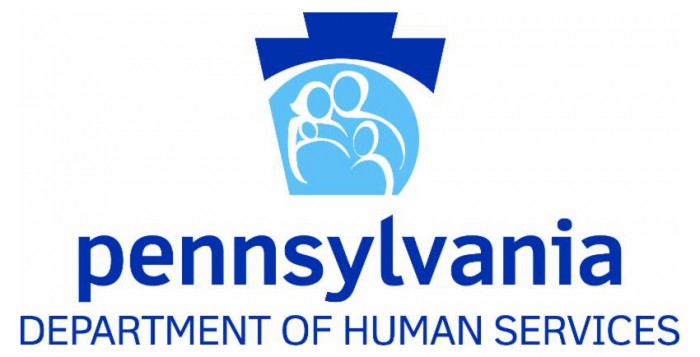On November 13, 2017, the Centers for Medicare and Medicaid Services (CMS) began to post a list of potential audits for Recovery Audit Contractors (RACs) to review. The topics will be listed, on a monthly basis, on the Provider Resources page of the CMS website. The topics currently proposed include: review of pre-admission screening, post-admission examination, and other requirements for inpatient rehabilitation facility (IRF) stays. The review type is identified as a “complex review.” Comments or questions should be submitted via email.
CMS
CY 2018 Medicare Physician Fee Schedule Final Rule
On November 3, 2017, the Centers for Medicare and Medicaid Services (CMS) released the calendar year (CY) 2018 Medicare Physician Fee Schedule final rule. The proposed rule updates payment policies, payment rates, and quality provisions for services with an overall payment update of .41 percent.
Some of the key provisions finalized in the rule include:
- Addition of several codes to the list of telehealth services, eliminating the required reporting of the telehealth modifier GT for professional claims in an effort to reduce administrative burden for practitioners, and separating payment for CPT code 99091, which describes certain remote patient monitoring, for 2018;
- Adoption of CPT codes for CY 2018 for reporting several care management services currently reported using Medicare G-codes and clarifying a few policies regarding chronic care management;
- Increase in payment rates for office-based behavioral health services that better recognizes overhead expenses for office-based face-to-face services with a patient;
- Revision of Part B drug payments for infusion drugs furnished through an item of durable medical equipment (DME) to conform with requirements of the 21st Century Cures Act;
- Revision of payment for chronic care management in Rural Health Clinics (RHCs) and Federally-Qualified Health Centers (FQHCs), and establishing requirements and payment for RHCs and FQHCs furnishing general behavioral health integration (BHI) services and psychiatric collaborative care model (CoCM) services;
- Implementation of the Medicare Diabetes Prevention Program (MDPP) expanded model starting in 2018;
- Change to the current Physician Quality Reporting System (PQRS) program policy that requires reporting of 9 measures across 3 National Quality Strategy domains to only require reporting of 6 measures for the PQRS with no domain requirement; and
- Revision to the rules for accountable care organizations (ACOs) participating in the Medicare Shared Savings Program to reduce burden and streamline program operations.
In addition, CMS indicated they will continue to consider the following based on comments from stakeholders:
- Stakeholder input in response to the proposed rule’s comment solicitation on how CMS could expand access to telehealth services, within the current statutory authority;
- Reviewing and updating “outdated” Evaluation and Management (E/M) visit codes; and
- Reviewing stakeholders’ comments for potential future rulemaking or publication of sub-regulatory guidance pertaining to the Clinical Laboratory Fee Schedule (CLFS) data collection and reporting periods.
The final rule will be published in the November 15, 2017 Federal Register.
IRF Quality Reporting Deadline Approaching
The inpatient rehabilitation facility (IRF) quality reporting program (QRP) submission deadline is coming up on Wednesday, November 15, 2017. The submission deadline includes both the IRF patient assessment instrument (PAI) assessment data and the IRF data that is submitted to the Centers for Medicare and Medicaid Services (CMS) via the Center for Disease Control and Prevention’s (CDC) National Healthcare Safety Network (NHSN) for discharges. Providers are encouraged to run validation/output reports prior to each quarterly reporting deadline to ensure all required data is submitted. The list of required measures are posted on the IRF Quality Reporting Data Submission Deadlines web page.
CMS Requests Input on Enhancements to Star Rating Methodology
The Centers for Medicare and Medicaid Services (CMS) has contracted with the Center for Outcomes Research and Evaluation (CORE) to re-evaluate the Overall Hospital Quality Star Rating on CMS’ hospital quality website, Hospital Compare. The goal of the Overall Hospital Quality Star Rating project is to improve the usability, accessibility, and interpretability of this website for patients and consumers.
CMS and the development team are seeking stakeholder input on several methodology reevaluation items designed to enhance the Overall Star Rating methodology. This public input period aims to highlight technical and policy considerations for the public. While the team has evaluated several methodological enhancements and continues to evaluate others, this public input period is designed to solicit specific feedback on the content, enhancements listed, as well as topics in active re-evaluation.
Members are encouraged to review the document thoroughly and provide feedback by close of business on Wednesday, September 27, 2017 via email.
Special Open Door Forum to Focus on IMPACT Act
On Thursday, September 28, 2017, from 2:00 pm to 3:00 pm, the Centers for Medicare and Medicaid Services (CMS) will host a special open door forum (SODF) that will provide information and solicit feedback on the Improving Medicare Post-Acute Care Transformation (IMPACT) Act of 2014. Topics will include the goals of the IMPACT Act, RAND contract activities for item development (including pilot test results and plans for the upcoming national field test), and identifying opportunities for providers, consumers, stakeholders, researchers, and advocates to become involved over the next year. CMS welcomes questions, comments, and ideas from providers, patients, consumers, researchers, and advocates in advance or during the forum. Questions, comments, and ideas should be submitted via email. The presentation for the SODF is posted on the IMPACT Act Downloads and Videos web page.
To participate in the SODF, dial:
1-800-837-1935
Conference ID: 66557294
A transcript and audio recording of this SODF will be posted to the Special Open Door Forum website, and for downloading under the downloads section, as well as the IMPACT Act Downloads and Videos web page.
Jimmo Settlement Agreement Web Page Launched
The Centers for Medicare and Medicaid Services (CMS) has launched the Jimmo Settlement Agreement web page. This web page provides access, in one location, to various public documents and resources related to the Jimmo Settlement Agreement, including a Frequently Asked Questions (FAQs) link.
Background on Settlement Agreement:
On January 24, 2013, the US District Court for the District of Vermont approved a settlement agreement in the case of Jimmo v. Sebelius, in which the plaintiffs alleged that Medicare contractors were inappropriately applying an “Improvement Standard” in making claims determinations for Medicare coverage involving skilled care (e.g., the skilled nursing facility (SNF), home health (HH), and outpatient therapy (OPT) benefits). The settlement agreement sets forth a series of specific steps for CMS to undertake, including issuing clarifications to existing program guidance and new educational material on this subject. The goal of this settlement agreement is to ensure that claims are correctly adjudicated in accordance with existing Medicare policy, so that Medicare beneficiaries receive the full coverage to which they are entitled.
The Jimmo Settlement Agreement may reflect a change in practice for those providers and contractors who may have erroneously believed that the Medicare program covers nursing and therapy services under these benefits only when a beneficiary is expected to improve. The Settlement Agreement is consistent with the Medicare program’s regulations governing maintenance nursing and therapy in skilled nursing facilities, home health services, and outpatient therapy (physical, occupational, and speech) and nursing and therapy in inpatient rehabilitation hospitals for beneficiaries who need the level of care that such hospitals provide.
Call to Focus on Regulatory Changes to Medicare Claims Appeal Process
On Thursday, June 29, 2017, the Centers for Medicare and Medicaid Services (CMS) and the Office of Medicare Hearings and Appeals (OMHA) will host a call from 1:00 pm to 3:00 pm that will focus on the recent regulatory changes to the Medicare claims appeals process. There will also be discussion surrounding the Medicare Appeals Final Rule that was published in the January 17, 2017 Federal Register, as well as the changes that are intended to streamline the administrative appeals processes, reduce the backlog of pending appeals, and increase the consistency in decision making across appeal levels.
To participate in the call, registration is required by 12:00 pm on June 29, or until the event is full. Following the presentation, time will be allocated to a session for questions and answers.
DHS Quality Strategy for Managed Care
In the May 13, 2017 PA Bulletin, the Department of Human Services (Department) made available for public review and comment the Medical Assistance Quality Strategy for Pennsylvania.
The Department is complying with Centers for Medicare and Medicaid Services’ (CMS) requirement that states draft and implement a written quality strategy for assessing and improving the quality of health care and services furnished by managed care organizations that have a contract with the Department. As a result, the Department has developed the Medical Assistance Quality Strategy for Pennsylvania, which discusses the various quality improvement initiatives the Department has implemented to increase the quality of care for individuals receiving services through its managed care programs. The Medical Assistance Quality Strategy for Pennsylvania is not intended to comprehensively describe all the activities that the Department undertakes to assure the quality of care rendered to individuals who are receiving services through managed care programs.
The Department’s quality strategy will be used to assure that the contractors that are implementing the Department’s managed care programs are in compliance with the terms of their agreements with the Department and have committed resources to meet the following: to perform monitoring and ongoing quality improvement; to contribute to the improvement of health for the populations they serve; and to incorporate new programmatic changes to assure that the individuals they serve have timely access to high-quality care.
The Medical Assistance Quality Strategy for Pennsylvania will include programs and initiatives within the following:
- The Office of Medical Assistance Programs, Bureau of Managed Care Operations;
- The Office of Mental Health and Substance Abuse Services;
- The Office of Long-Term Living Community HealthChoices;
- CHIP; and
- Adult Community Autism Program (ACAP).
The Medical Assistance Quality Strategy for Pennsylvania can be viewed here and interested persons are invited to submit comments regarding the Medical Assistance Quality Strategy for Pennsylvania to the Department via email. Comments received within 30 days must be reviewed and considered before the Quality Strategy is submitted to CMS for review.
Persons with a disability who require an auxiliary aid or service may submit comments using the Pennsylvania AT&T Relay Service at 800-654-5984 (TDD users) or 800-654-5988 (voice users).
Regulatory Freeze Delays Bundled Payment Final Rule
The Centers for Medicare and Medicaid Services (CMS) published a final rule; delay of effective date notice in the February 17, 2017 Federal Register that delays the effective date of the rule, “Advancing Care Coordination Through Episode Payment Models (EPMs); Cardiac Rehabilitation Incentive Payment Model; and Changes to the Comprehensive Care for Joint Replacement (CJR) model.” This notice clarifies that, in accordance with the White House’s regulatory freeze, provisions of CMS’ bundled payment final rule that were to become effective on February 18, 2017, are now delayed until March 21, 2017.
Upcoming Call to Focus on IMPACT Act in 2017
On February 23, 2017, from 1:30 pm to 3:00 pm, the Centers for Medicare and Medicaid Services (CMS) will host a call, “Looking Ahead: The IMPACT Act in 2017,” focusing on the Improving Medicare Post-Acute Care Transformation (IMPACT Act) of 2014. The IMPACT Act requires the reporting of standardized patient assessment data by post-acute care (PAC) providers, including inpatient rehabilitation facilities (IRFs), skilled nursing facilities (SNFs), home health agencies (HHAs), and long-term care hospitals (LTCHs). Agenda topics during this call will include the requirements, goals, progress to date, and key milestones for 2017. CMS will also convene a question and answer session following the presentation. To participate in the call, registration is required.
















